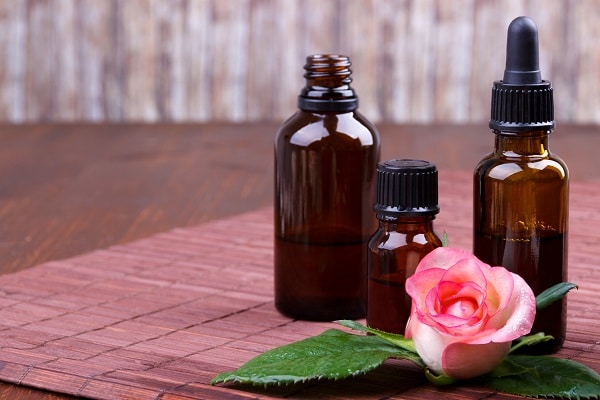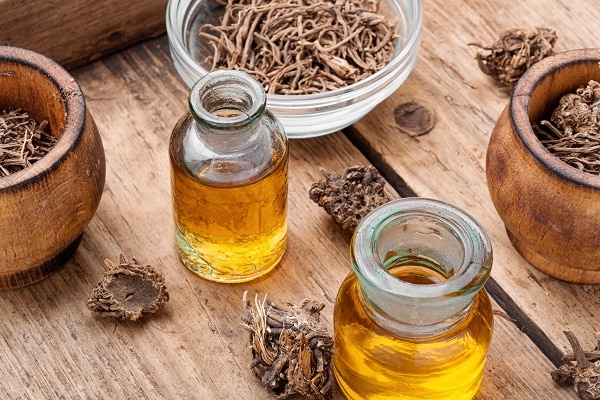Anxiety is a mental health disease that causes feelings of extreme worry, nervousness, and panic. It can be from stress, grief, or a traumatic event, and it’s a symptom of other mental health disorders like depression. Anxiety is one of the numerous prevalent mental health disorders in the United States, but many treatment options, including medications and therapy, can help you.
Other anxiety treatments include behavioral techniques and natural remedies. Some natural remedies are herbal, and others are essential oils, and they help relieve anxiety symptoms. Essential oils have numerous health benefits, and one of their many uses is in treating anxiety.
How To Utilize Essential Oils

Essential oils are plant extracts with various uses; for example, you may have heard that lavender and peppermint oils can help you relax. Essential oils are a big part of aromatherapy, a form of alternative medicine that can ease discomfort, boost mood, and promote healing. Aromatherapy is the idea that our sense of smell influences our bodies’ health and emotions, so diffusing certain scents into an area can improve health, mood, and energy levels. These essential oils provide different benefits to our body parts and get relieved from a variety of diseases.
List Of 5 Essential Oils For Relieving Stress And Anxiety
Lavender Oil

Lavender oil helps people treat everything from headaches to sunburns, but its anxiety relief benefits are the best documented. In the last decade, various studies have confirmed that lavender oil can help people with anxiety-related disorders in several ways. One study discovered that inhaling lavender oil for eight weeks led to a 70% improvement in generalized anxiety disorders, including symptoms. The reason for lavender’s anxiety relief properties is a mystery. The scent of lavender may affect the limbic system, which controls feelings and emotions.
Aromatherapists recommend this essential oil for helping to boost the mood and to help relieve nervous tension. Some aromatherapy-based mental relaxation methods specifically use the aroma of lavender to help induce a calm and focused state. However, it is essential to note that there is a difference between lavender oil and the scent of lavender flowers. While the flowers themselves have a delightful smell, the smell of lavender oil is powerful and can be devastating if you are not used to it. If you are using lavender oil for anxiety, make sure you are getting high-quality oil from a reputable source.
Rose Oil

With tones of sophistication and elegance, rose essential oil has a sweet, floral scent that can help you relax, while its calming properties can help reduce hyperactivity, nausea, and headaches. Rose essential oil is a potent oil, and you should dilute it before applying it to the skin. Typically, the recommended dilution is 1.5% to 3.0%. The best way to use rose essential oil is in a bath. This allows the skin to absorb the oil faster, so it also prevents any adverse reactions. You can also use rose essential oil in a massage, as aromatherapy, and in a diffuser.
Rose essential oil helps reduce high blood pressure (hypertension). It has also been utilized in aromatherapy to help with high blood pressure because of its calming, soothing effects. Rose oil is also helpful for allergies and asthma. It can reduce inflammation which makes it an excellent choice for fighting allergies. It can be used topically or breathed to help reduce hay fever and other respiratory problems. It has incredible benefits to the skin, including its ability to soothe and treat skin illnesses such as acne, burns, eczema, dermatitis, wounds, and much more.
Ylang Ylang

Ylang ylang essential oil is a beautiful oil to diffuse as it promotes relaxation. It also helps balance and calms the emotions. This makes it very useful for people experiencing depression and for those going through stressful times.
It is one of the several common essential oils from the ylang-ylang tree’s flowers. The oil comes from steam distillation of the flowers of the tree. It is popular in the fragrance industry for its sweet, floral aroma. It is a standard bathroom cabinet staple, and it’s also known as Cananga odorata or the flower of flowers. Its name is from the Malay words for “flower” and “fragrant.” This is a tree native to the Philippines but is also grown in India and other tropical areas. It’s used to make perfume, incense, and beauty products and has a calming effect.
The most distinct aroma associated with ylang ylang essential oil is a strong, sweet floral fragrance.
Valerian

Valerian essential oil is a relaxing oil that can help to calm nervous tension and restlessness. It is often practiced in aromatherapy massage to help people with anxiety and stress and help aid sleep. It has a distinctive, strong odor that some people find pleasant and others find disgusting. It is an effective remedy for many people who have insomnia and encourages a restful sleep cycle and alleviates symptoms of depression. It is from the root of the Valerian plant. It is thought to have a calming effect on the body and can be used in aromatherapy to relieve stress-related conditions such as anxiety and insomnia. The essential oil helps reduce specific health conditions symptoms, such as treating restlessness associated with attention deficit hyperactivity disorder (ADHD), promoting relaxation, and treating depression and stress.
It is one of the oldest medicinal herbal extracts in the world. The ancient Greeks and the Romans used it, and it is still used by many cultures today as a treatment for several conditions. Valerian essential oil helps treat insomnia, anxiety, headaches, muscle spasms, and obsessive-compulsive disorder.
Jasmine

Jasmine is a sweet, floral aroma that uplifts both the mind and the body. For this reason, jasmine essential oil is commonly used in aromatherapy to treat symptoms of depression, anxiety, and other mood disorders. It also helps to reduce stress and eliminate anger, fear, pain, and sadness. This essential oil comes from jasmine plants’ flowers, native to North Africa and the Middle East. Its scent is sweet and light, making it a popular ingredient in perfumes. Jasmine essential oil is also known to possess several important health benefits.
With more than two dozen constituents, including sesquiterpenes, monoterpenes, and aldehydes, jasmine essential oil has a complex chemical composition. It is known to be antibacterial, anti-inflammatory, anti-anxiety, antimicrobial, antifungal, and an insecticide. It has been used since ancient times to treat everything from skin problems to menstrual disorders. Today, people continue to use jasmine oil for its floral scent and other purported health benefits. In some cases, jasmine essential oil is rubbed into the skin to help with joint pain or perfume. It also is used to treat depression or pain associated with menstrual cramps. Aromatherapists use jasmine essential oil to help with relaxation and restlessness, making users feel more positive and content. The scent of jasmine essential oil may also help to alleviate depression.
Conclusion
Essential oils are one of the oldest and most natural remedies to assist people with anxiety and other common health issues. Use some of these oils in your lotions, baths, diffusers, and more to get all of the benefits possible. You can even make your own perfume so that you can fight anxiety symptoms anywhere you go.


